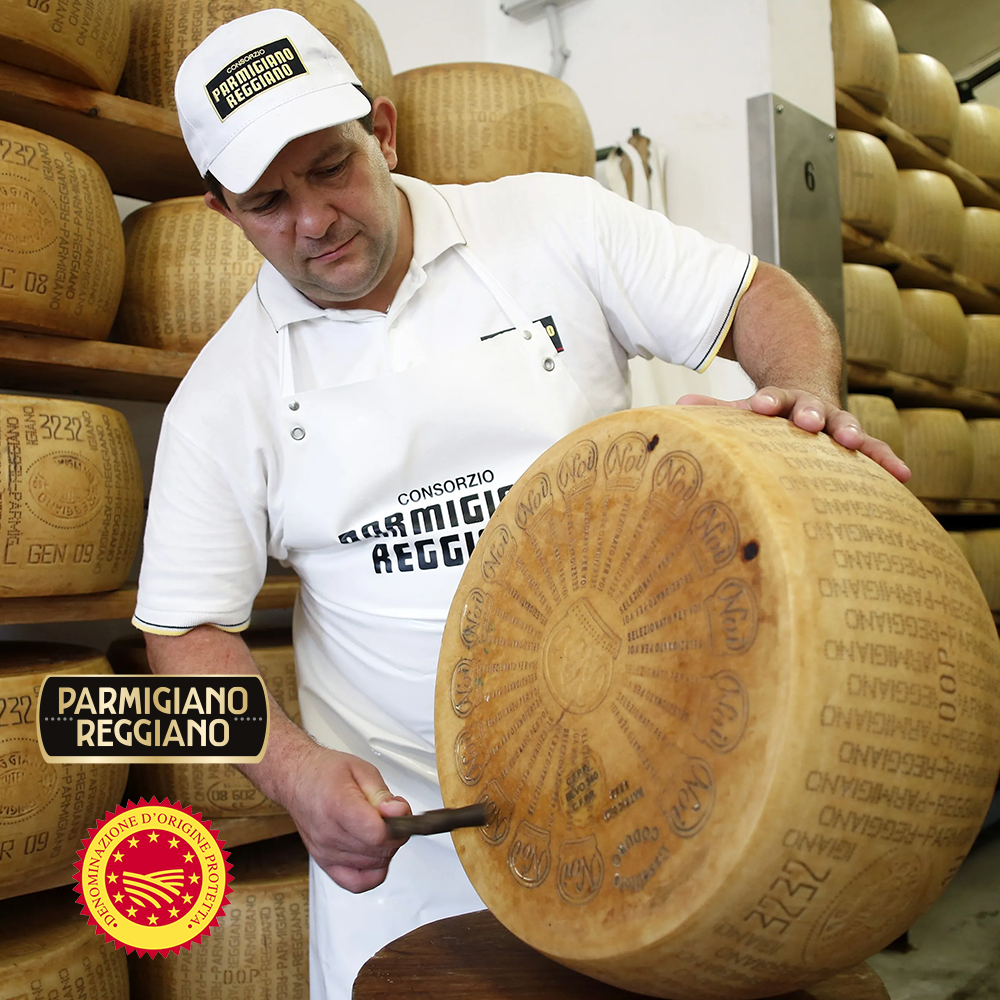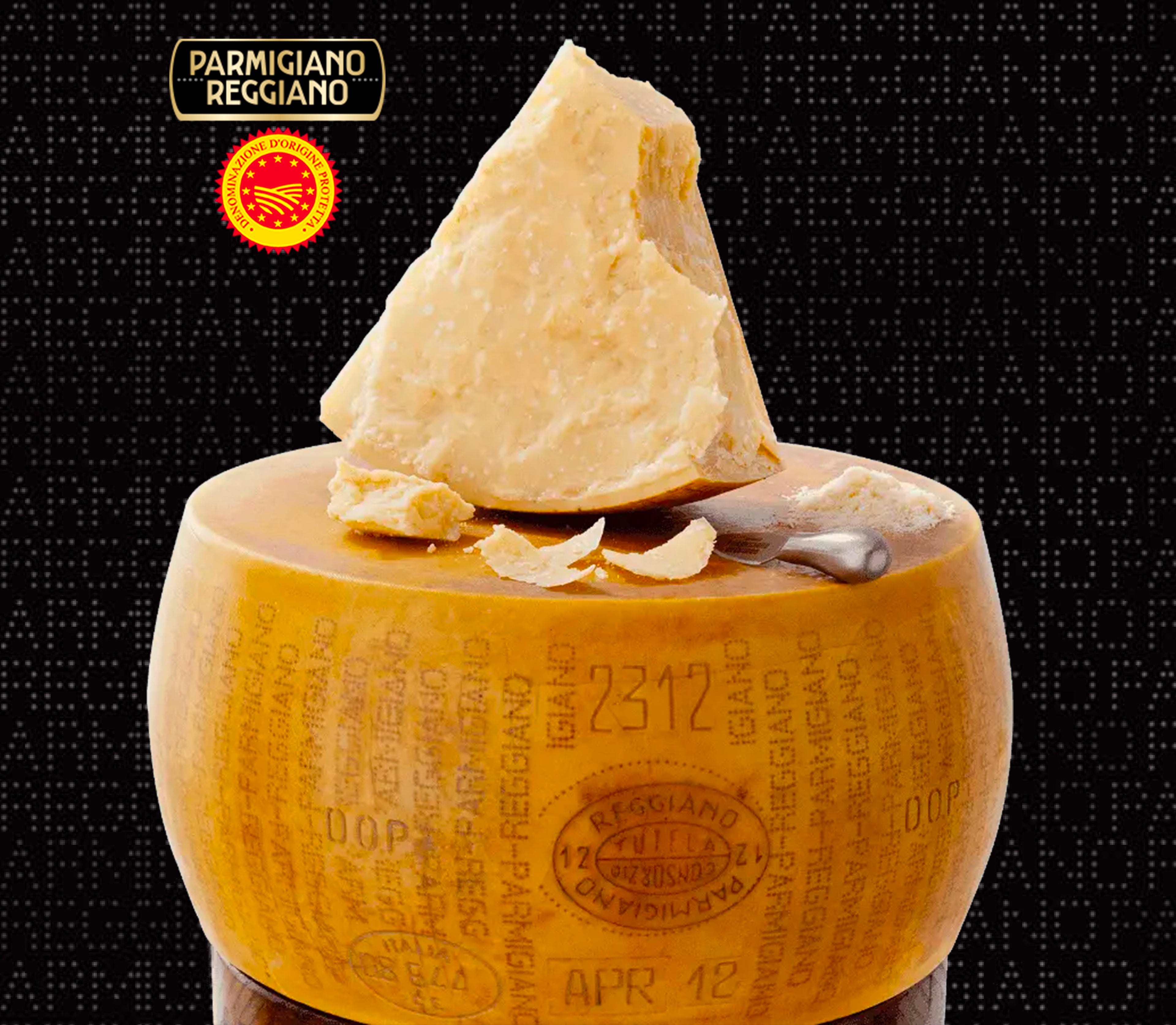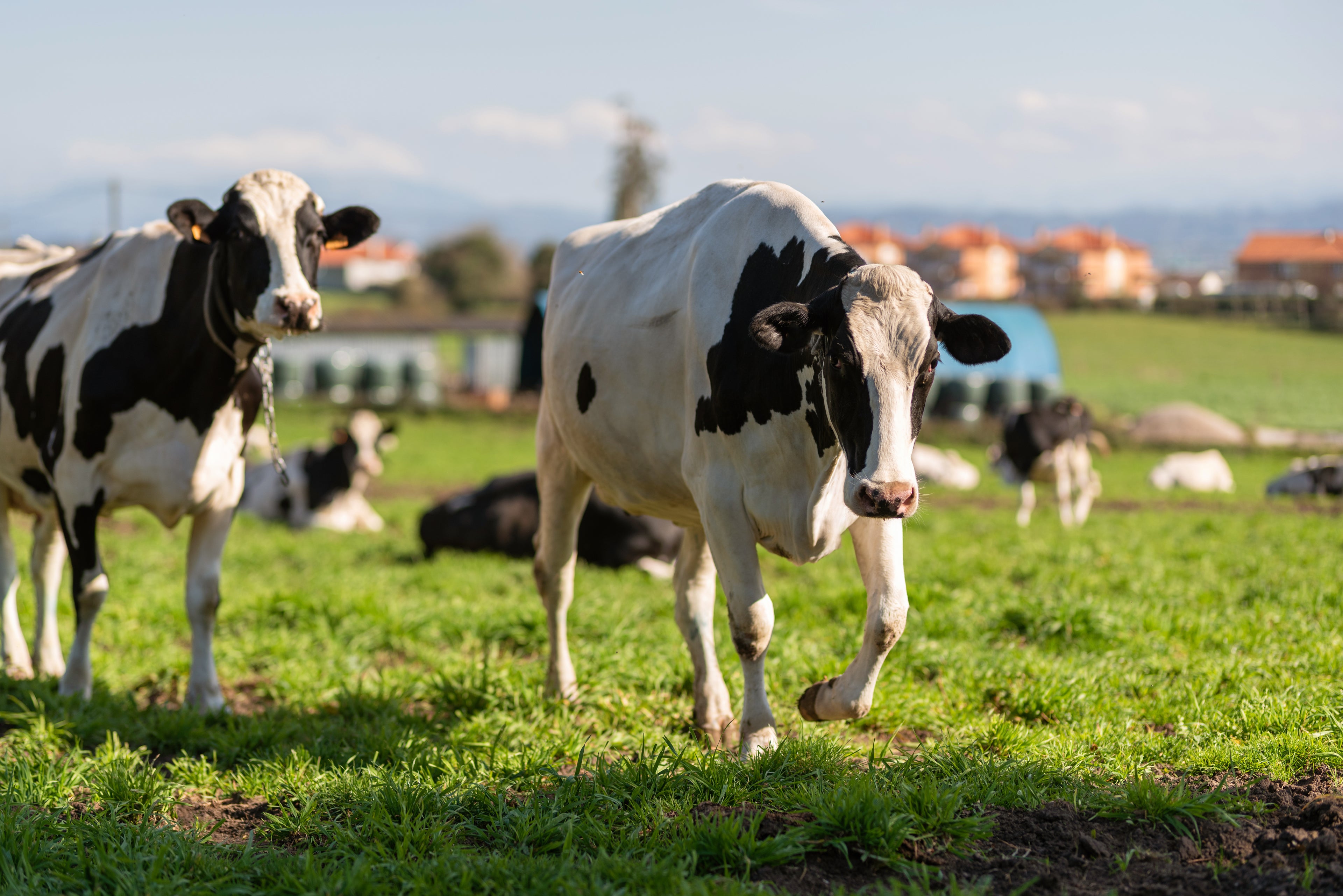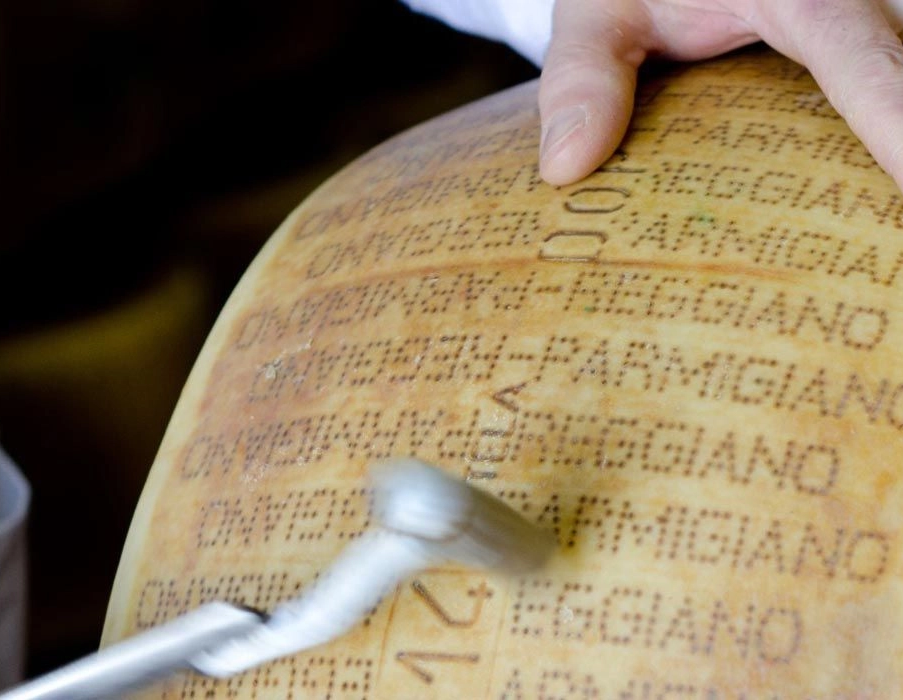Parmigiano Reggiano is an iconic Italian cheese made exclusively in the provinces of Parma, Reggio Emilia, Modena, and parts of Bologna and Mantua, where cows are fed only regionally grown, natural forage. Strict production standards prohibit silage, fermented feeds, and animal-based flours, ensuring the purity and authenticity of every wheel. Crafted using centuries-old methods, it takes over 550 liters of milk to produce a single wheel, which is carefully aged for a minimum of 12 months to develop its signature texture and complex, nutty flavor.
Each wheel undergoes a meticulous process: from copper cauldrons and hand-curdling to natural brining and slow aging. After 12 months, expert inspectors from the Consortium test each wheel by sound to ensure flawless quality. Only the best are fire-branded as true Parmigiano Reggiano, a cheese unmatched in flavor, tradition, and origin.


























